Sight word recognition Alphabet Worksheets for Ages 3-9
5 filtered results
-
From - To
Boost your child's reading skills with our Sight Word Recognition Alphabet Worksheets designed for ages 3-9. These engaging, printable resources from Kids Academy focus on early literacy, combining letter recognition with sight word practice. Ideal for preschool to early elementary learners, these worksheets support vocabulary development, reading fluency, and confidence. Each worksheet features colorful illustrations and fun activities to maintain interest and enhance understanding. Created by education experts, these materials provide a solid foundation for reading success, making learning enjoyable and effective. Explore our collection and give your child the tools to become a proficient reader today!
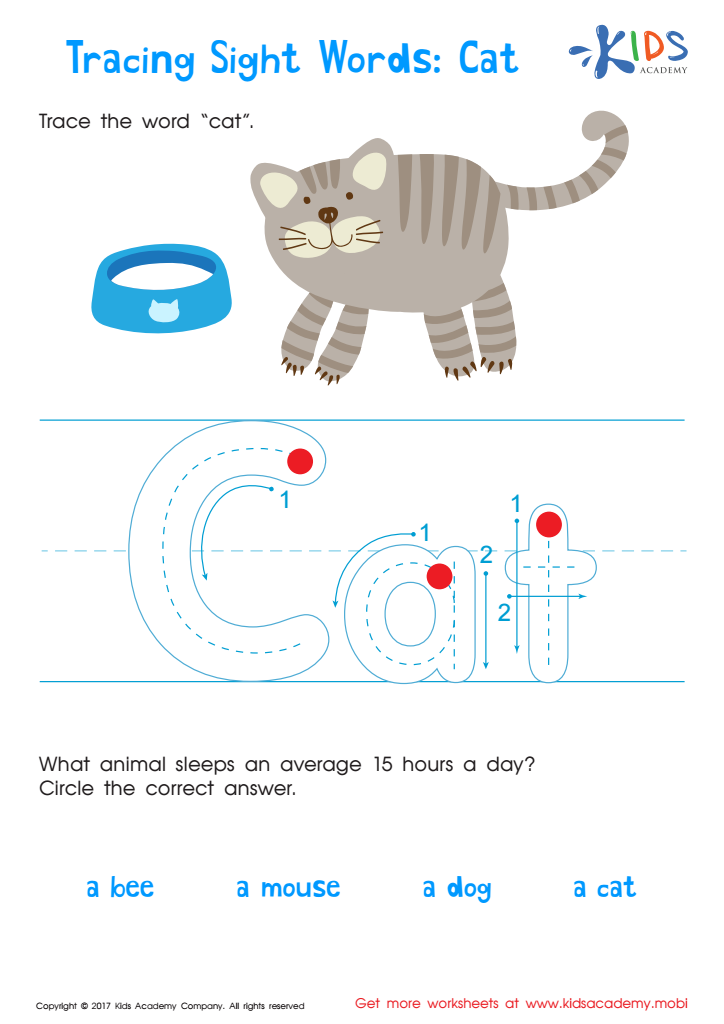

Cat Printable Sight Words Worksheet
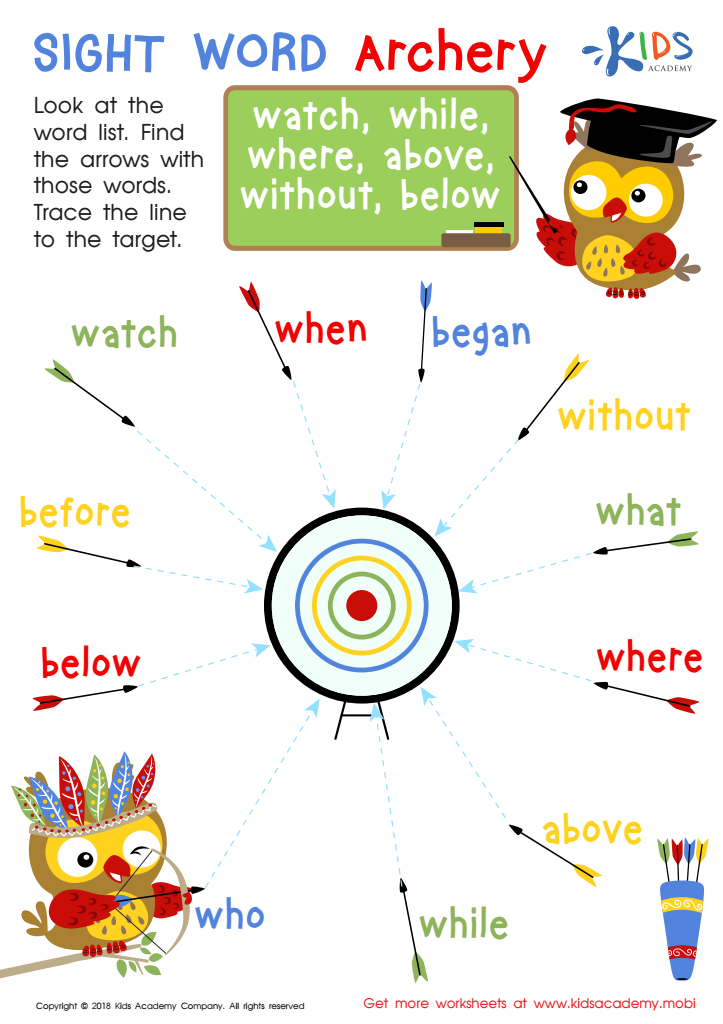

Sight Word Archery Worksheet
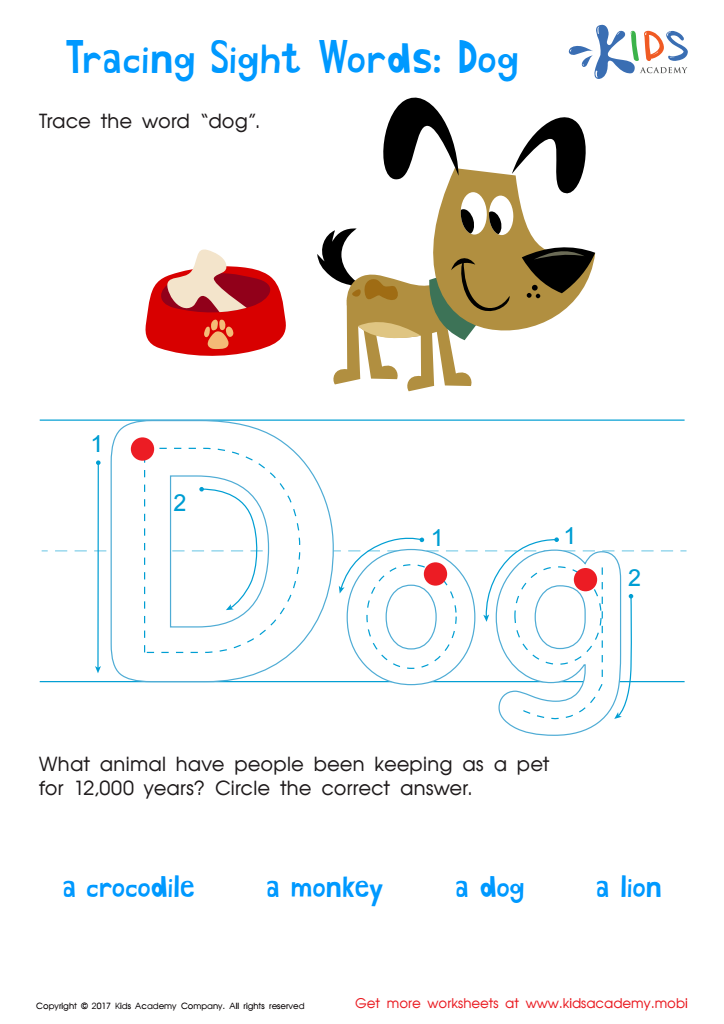

Dog Worksheet Sight Words Worksheet
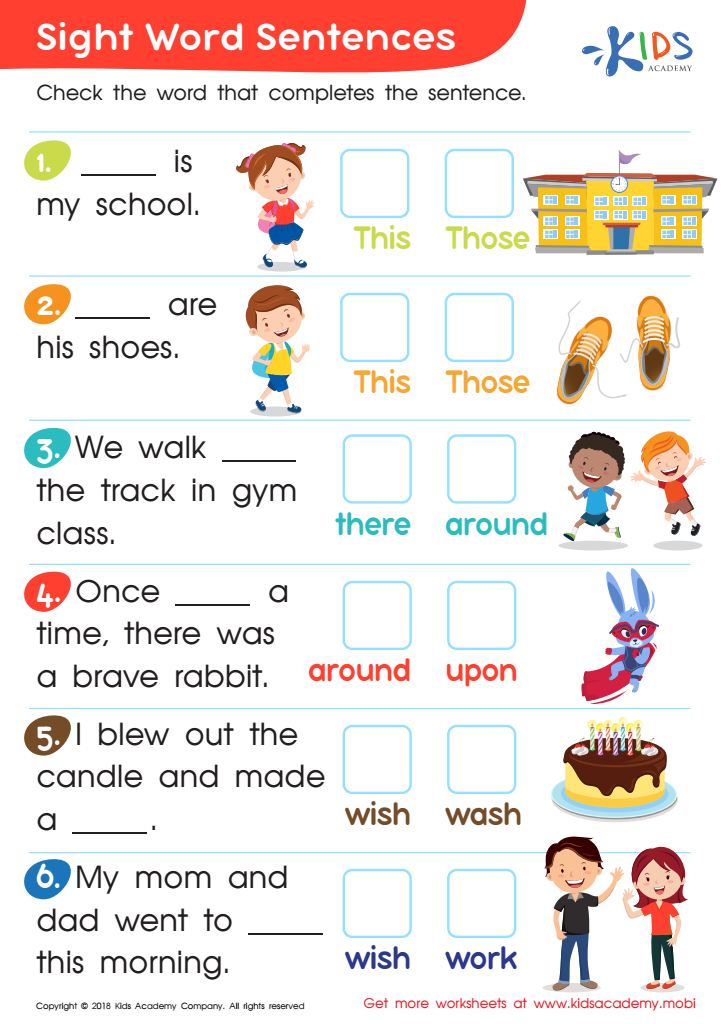

Sight Word Sentences Worksheet
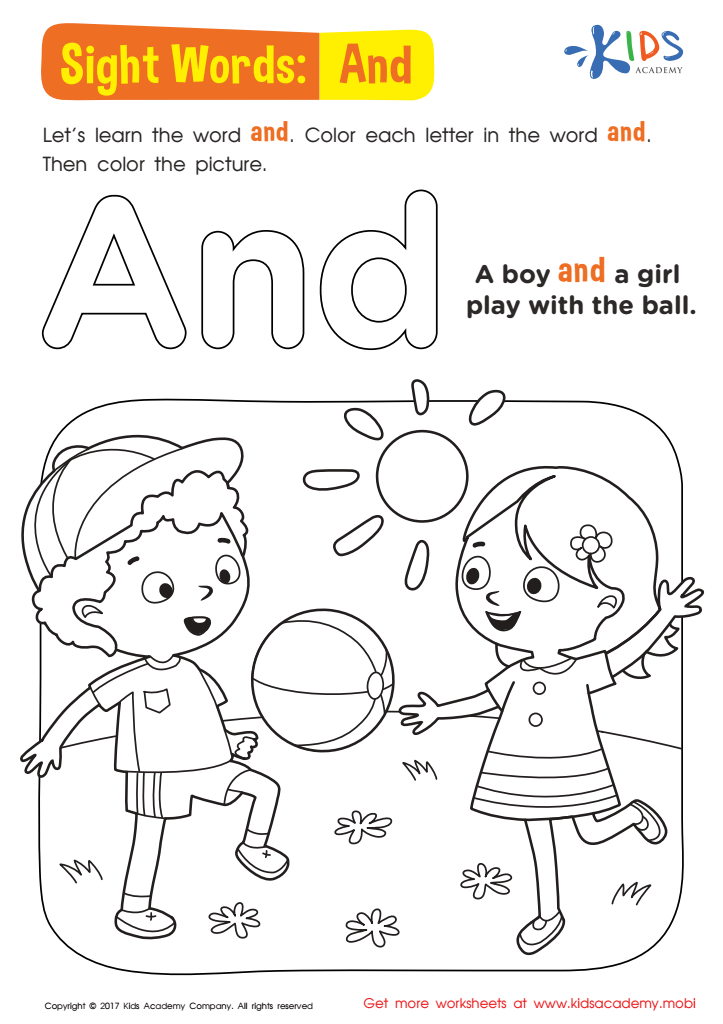

And Worksheet Sight Words Worksheet
Sight word recognition and knowledge of the alphabet are crucial foundational skills for young learners, ages 3-9. These skills are essential because they lay the groundwork for future reading success, which is pivotal for academic achievement in all subjects. Sight words, often high-frequency words that cannot be easily sounded out, are common in early reading materials. When children can quickly recognize these words, they gain fluency in reading, allowing them to focus on comprehension rather than decoding each word laboriously. This fluency boosts confidence and fosters a love for reading, which is linked to better performance across all academic disciplines.
Similarly, understanding the alphabet is the first step towards phonemic awareness, where children learn the connection between letters and their corresponding sounds. This knowledge is critical for developing decoding skills, enabling children to read unfamiliar words more easily. Together, these skills not only make the process of learning to read more efficient but also more enjoyable.
Parents and teachers should prioritize these skills to ensure children meet reading milestones, ultimately supporting their educational journey. Early intervention in sight word recognition and alphabet knowledge helps prevent future reading difficulties, promoting a smoother and more successful academic trajectory for young learners.

 Assign to My Students
Assign to My Students


















